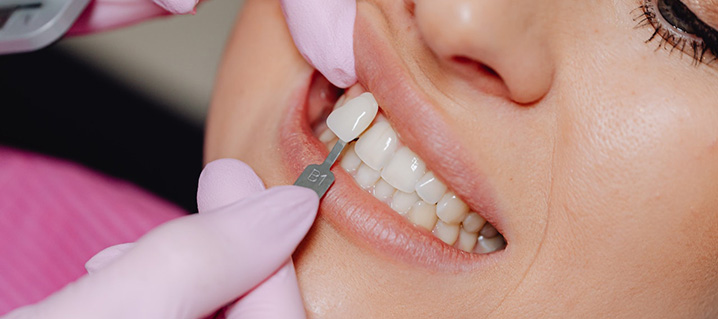Teeth grinding - an introduction
06 Oct 2023
3 min read
WHAT CAUSES TEETH GRINDING?
Bruxism – or teeth grinding – is a condition you need to manage because, in some cases, it can damage teeth, the joints of the jaw and facial muscles.
Sufferers will often grind their teeth while they’re asleep.
It’s believed the phenomenon is driven by the relentless activity of the subconscious brain.
Worn down teeth
People who grind their teeth over a long period may notice their teeth becoming slightly shorter.
Muscles around the jaw may feel sore.
And, in some cases, jaw muscles can appear visibly bulkier on the face.
Teeth grinding symptoms
Teeth grinding can lead to a number of other dental problems including sensitive teeth.
Constant grinding can compress the ligaments around the teeth – and can lead to bruising.
In severe cases, it can cause cracks in the teeth and may even damage the nerves.
Other symptoms of bruxism can include neck and shoulder pain, earache, headaches and disturbed sleep patterns.
HOW DO I MANAGE TEETH GRINDING?
If you grind your teeth during the day, it’s important to stay mindful and alert to your own actions.
In other words, you need to get into the habit of catching yourself in the act of grinding your teeth.
It’s easy to grind your teeth without realising you’re doing it.
The more you practise, the more you can catch yourself grinding your teeth.
Teeth grinding mouth guards
Managing unconscious teeth grinding at night is more of a challenge… but there are some methods that can help.
Dentists may recommend a mouth guard or dental splint tailor-made to fit perfectly over your teeth.
These devices cushion the teeth and soften the friction caused by bruxism.
Managing teeth grinding
Some dentists recommend treatment with the wrinkle-relaxing injections associated with facial aesthetics.
Injections into the jaw muscles can lessen their strength – and therefore also reduce the intensity of the grinding and clenching.
Teeth grinding and stress
While there is no cure for bruxism, it can be effectively managed.
It’s often linked to anxiety and stress so people who grind their teeth should think about the best ways to relax.
These can include breathing techniques, meditation and regular exercise.


